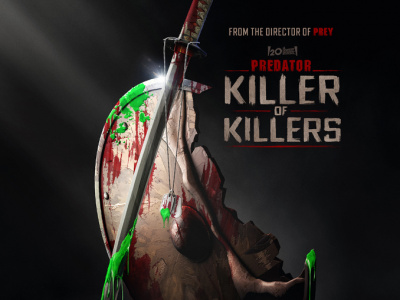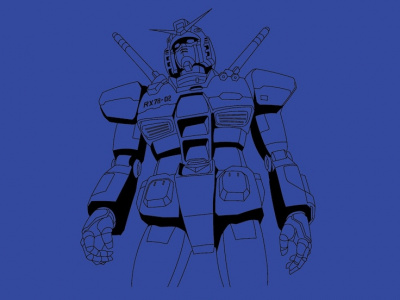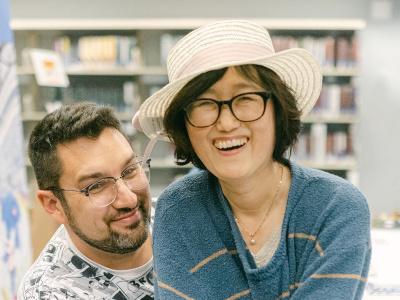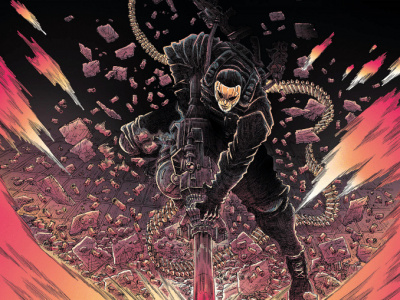
DC’s Senior VP of Sales Bob Wayne and VP of Marketing John Cunningham took time out from the busy Friday schedules to talk with ICv2 about comic sales in May. DC’s duo comment on the narrowing marketshare gap with Marvel, on the success of the first "New 52" graphic novel collections, on why publishers double-dip with hardcovers and trades, and Wayne makes a bold prediction about the sales of the first issues of the Before Watchmen titles.
First off, what are you initial impressions of May sales?
Bob Wayne: We are pleased that the marketshare results are pretty tight between us and our nearest competitor, and we are definitely happy with having seven out of the top 10 comics, and we have also done well on the graphic novel side, taking the top two spots and four out of the top five on Diamond’s graphic novel charts.
For the second month in a row, Scott Snyder’s Batman comic topped Justice League, do you see a trend here?
Bob Wayne: Well certainly Batman has been picking up steam and it is quite the horse race between the two titles. There are definitely things coming up in both books that the folks involved have told John and me about that show that they are both trying to make sure that their book comes in at #1. I think that comic readers will benefit from this internal competition.
Well Justice League did come in ahead of Batman on Diamond’s graphic novel chart, but in the bookstores it was the other way around. How do you explain that?
John Cunningham: I would explain it by saying that it follows the trend line that we see in the bookstore market continually, which is that Batman is our most iconic and best known character in that market and bookstore sales have always reflected that. So, on that level it fits right into the pattern that we have seen over the last few years, and the fact that Batman, because of the marketing for the new movie, is in the public eye has something to do with that as well.
Bob Wayne: I think that because of the movie retailers in the bookstore channel are bringing in more copies because they see that they will be able to sell more as excitement for the movie builds.
Yesterday Warner Bros. Consumer Products announced that they had acquired most of the licensing rights to the 1960s Batman TV series, and that they plan a major merchandizing program based on the property—will there be a DC Comics component to the campaign?
Bob Wayne: No that’s a consumer products initiative. We are looking forward to seeing what they come up with, but it’s not having an impact on our publishing program.
Retailer Brian Hibbs has suggested that DC should publish its graphic novel collections first as lower-cost trade paperbacks, and then later move to higher-priced deluxe hardcovers for the titles that warrant it. Have you given any thought to a publishing model like that?
Bob Wayne: We have thought about it and that’s why we do it the way we do. While certain titles do get a deluxe or an Absolute Edition at some point, we think our retailer would be leaving a lot of money on the table if we didn’t give consumers the chance to buy hardcovers first on select titles. The sales we are having in both channels on Batman and Justice League in the month of May indicate that we don’t have that many people waiting the trade, looking for that cheaper edition. A lot of people seem to want a nice durable hardcover and we plan to follow this model for the foreseeable future.
John Cunningham: I’m not sure why we would want to reverse course going into the book market and veer away from the standard way that books are published in that traditional market. I can understand how retailers in our core business can look at people "looking" for the trade paperback, but that is a phenomenon that booksellers have experienced throughout the past few decades. I can tell you about the times I worked in a bookstore. A new hardcover would be out on the table and people would come up and ask, "Do you have that in paperback yet?" This phenomenology is nothing new.
Bob Wayne: Certainly DC has been publishing books hardcover and then softcover editions since we first began publishing in book format with Watchmen and Frank Miller’s Dark Knight.
John Cunningham: One of the things in the publication of the "New 52" collections that I find most exciting is that Scott Snyder’s Batman book has not only been a #1 New York Times bestseller, if you follow the BookScan charts that book is now in its third week in the "Top 50" of all hardcover fiction, not just graphic novels. So it’s very tough to look at a book being that successful and say, "You know what, we should have published that in a different way."
Speaking of Watchmen, do you think that we will be looking at any of the Before Watchmen titles in the comic book "Top 10" in coming months?
Bob Wayne: Yes.
Is your affirmation based on ordering information, inside stuff, or just an educated guess?
Bob Wayne: I could probably say yes to all. My prediction is based on how sales are tracking now.
In defending the Before Watchmen project Dan Didio expressed the traditional view of the mainstream comic book industry saying that the industry’s strength lies in "building on other people’s legacies, enhancing them and making them stronger." How does this view square with the 21st Century comics industry when we are seeing the benefits of creator owned and controlled projects like Robert Kirkman’s The Walking Dead?
Bob Wayne: I think you are blurring the passion that the writers and artist have when they are working on a property as not being creative unless they have an ownership stake in the property. I think there is room for both models in our publishing plan, and certainly in comics overall. I don’t think one of them excludes the other from being successful. I don’t think that the success of The Walking Dead means that Fables doesn’t work or vice versa. They are just different ways for publishing companies, artists, writers, and creators to work together to maximize each property, and there’s no one way, no one-size-fits-all to do it.
John Cunningham: I think that there is a tendency in the way the world works now to try to view everything as an "either or." It’s either this way or it’s that way. I just don’t think that the world works in an "either or" fashion, and I certainly don’t think that this particular question functions in an "either or" fashion. I think you see that great talent will be creative no matter what their environment. As long as it speaks to their passion, and I think that you see that in creators all over the place whether they are doing books that they own, or they’re doing books as work for hire. If you are a talented artist or writer and you bring that passion to the work, it’s going to shine through.







